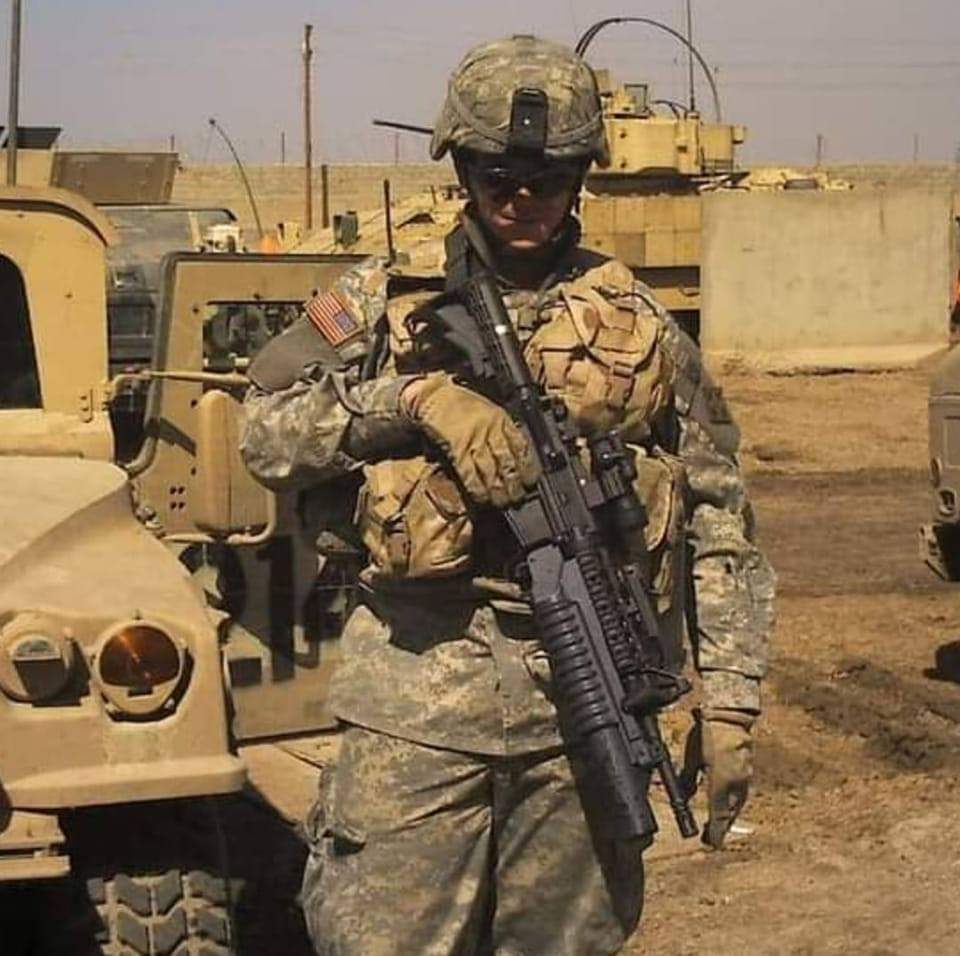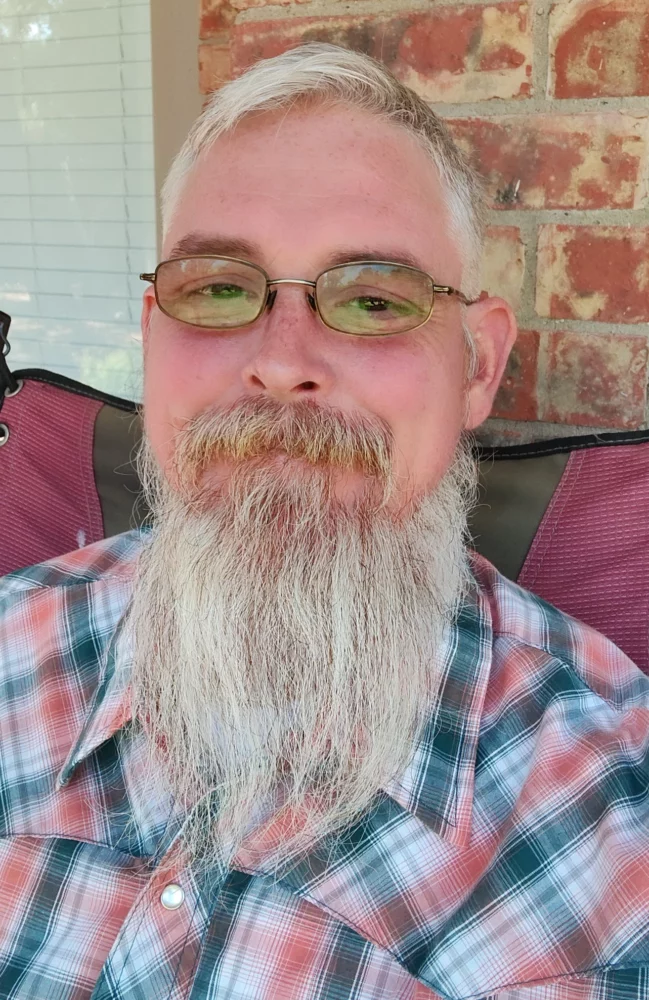
In the sprawling plains of Lubbock, Texas, the nearest major city is hours away. For veterans like Rick Welch, these vast distances aren’t just geographical; they represent the gap between receiving the healthcare he needs and the reality of being a rural veteran.
Veterans from rural areas often face unique challenges when it comes to accessing healthcare and other vital services provided by the Department of Veterans Affairs (VA). For many, the physical distance from VA facilities, coupled with limited local resources, makes it difficult to obtain the care and support they need. In this article, we delve into the experiences of Rick Welch, a veteran from West Texas, to shed light on the difficulties faced by rural veterans and the critical role that telehealth can play in improving their access to healthcare.
Rick Welch’s military journey began on July 28, 2004, when he enlisted in the U.S. Army. As a 19D Cavalry Scout with the 4th Brigade Infantry, he experienced the camaraderie and brotherhood that comes from serving in wartime. Deployed twice to Baghdad, Rick forged bonds that transcended the battlefield. “The overseas time actually made the camaraderie more heartfelt. The guys to our left and our right were all we had. For lack of better terms, we were a band of brothers,” Rick reflects.
Rick Welch deployed twice to Baghdad.
This bond remained strong even after their service, and the group has stayed connected and continued to support one another. “Over the years, we’ve lost a couple of guys to mental health challenges,” he continued. “It’s been tough, but we stick together.”
However, transitioning to civilian life proved to be an uphill battle. Discharged from Ft. Hood, Texas, Rick used his Post-9/11 GI Bill to pursue an associate’s degree at Central Texas College. Despite his determination, the lack of support during his transition was stark.
“I had no support in getting out of the military. Once the paperwork was in, it was like they had never seen me before,” he said.
Navigating the VA
Rick’s encounter with the VA system began when he ran into an old non-commissioned officer (NCO) who recommended he visit the Vet Center in Harker Heights and meet Miss Willie Brown. She was instrumental in helping him navigate his VA benefits, and when she passed away, her absence was notable. “Since we lost her, it’s been an ongoing battle,” he admits.
For veterans in rural areas, accessing VA facilities often means traveling long distances. Before a new VA facility opened in Lubbock, Rick had to drive up to two hours to Amarillo for major appointments. This not only required taking a full day off work but also impacted his income. “It made it challenging,” he said.
Rick’s experiences with the VA’s mental health services have been particularly difficult. Struggling with post-traumatic stress (PTS), he sought professional help but found the system ill-equipped to provide consistent care. “Most of my experience with the VA was getting us in and getting us out. They didn’t want to do anything with us except give us some pills and send us away,” Rick explained. High turnover among counselors exacerbated the issue, forcing Rick to repeatedly share his traumatic experiences with new doctors. “Each time, you have to start over and share these personal details about some of your worst experiences, and you have no faith that the next time you go back, that same counselor will be in there.”
Rick’s physical health issues have also been met with bureaucratic hurdles. His initial claim for a back injury was denied, forcing him to appeal and gather supporting evidence from former Army buddies and medics. Despite being authorized for chiropractic visits under the PACT Act, the intermittent nature of these approvals left him without care for months at a time. “It’s getting to where it’s really not helping anymore,” he explained.
Advocacy and Support: A Crucial Need
Rick’s advice to fellow veterans is clear: seek out knowledgeable advocates who can help navigate the VA system. “Make sure you’re informed and find someone who knows the system and can help — just like Miss Willie Brown,” he emphasized.
In the face of these challenges, telehealth has emerged as a crucial tool for Rick. It allows him to receive care without the need to take time off work or make long drives. “It’s what I predominantly use to get care because I can sometimes take the video appointment from my work without needing to take off time or drive to the health center. It’s really been a lifesaver,” Rick noted.
Rick believes that the military should better prepare service members for their transition to civilian life, including comprehensive education about VA benefits and services. He also calls for the VA to improve its support and reception for veterans.
“I think the military, regardless of branch, when you have your Expiration Term of Service (ETS) date, you should be in classes and informed about what’s going on, what the VA is there for, and VA reps who can point you in the right direction. It would really help future discharging service members to be prepped on how to get out. And if the VA had more reception to them rather than, ‘Fill this out. We’ll see what we can do.’
 “Being in the military, we often have to have things right now, and we want action and results immediately. So it’s a little bit of a change getting into the VA system, which I acknowledge. But I do think they could do better,” he said.
“Being in the military, we often have to have things right now, and we want action and results immediately. So it’s a little bit of a change getting into the VA system, which I acknowledge. But I do think they could do better,” he said.
Rick Welch’s story is a testament to the resilience of rural veterans and the challenges they often face. His experiences highlight the critical need for improved access to VA services and the potential of telehealth to bridge the gap. However, Rick is not alone. Rural, tribal, and minority veterans across the nation face similar challenges that demand our attention and action.
Rural veteran Rick Welch today in Lubbock, Texas
It’s essential to listen to the voices of these underserved veterans and their families. Their experiences shed light on the shortcomings of our current systems and offer invaluable insights into the changes needed to support those who have served our country. By sharing their stories and raising awareness, we can drive the momentum necessary for reform.
This is why Mission Roll Call exists. We aim to amplify the voices of veterans like Rick and bring their perspectives to the highest levels of government. Our mission is to advocate for positive change that addresses the unique challenges faced by underserved veteran populations. By doing so, we strive to create a ripple effect that improves the lives of veterans across the nation.
As we raise awareness of these challenges, it becomes imperative to advocate for systemic changes that ensure no veteran, regardless of their location, is left behind. Join us and let your voice be heard by becoming a member of Mission Roll Call.